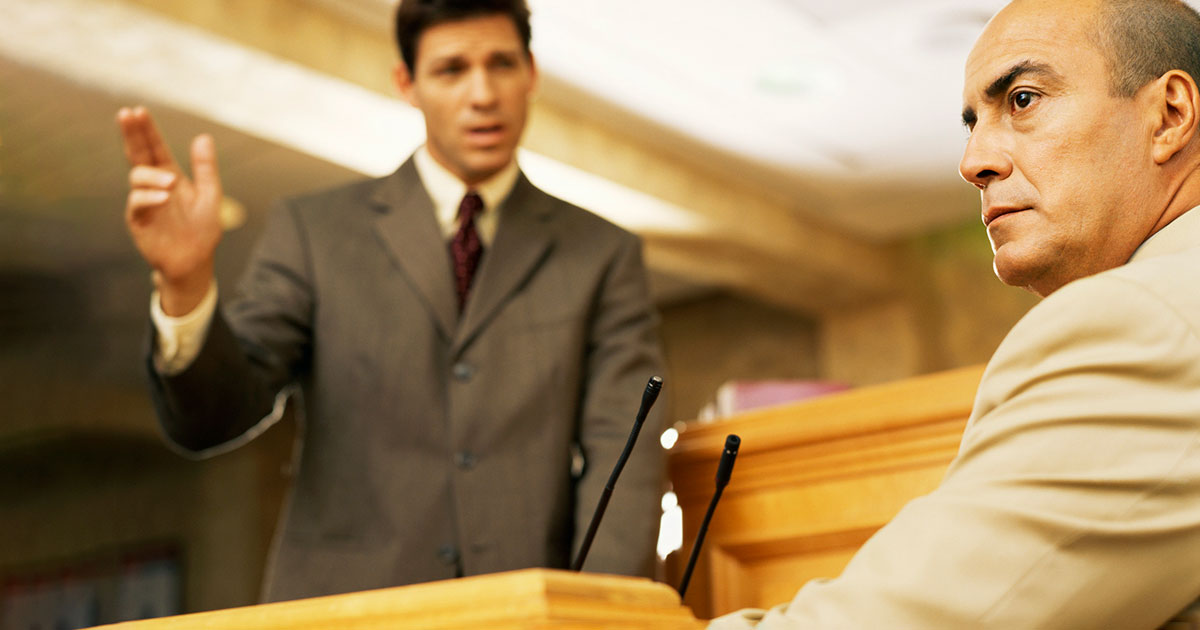
Expert witnesses are key to the success of a case.
At an early stage it is necessary to analyze what experts you need and what you want them to teach the jury, by identifying the critical and disputed issues in the case. Identifying these issues is important not only for expert selection, but also for drafting reports and preparing your experts to testify in the most effective manner.
It is also necessary to understand the relationship among your experts. This includes avoiding cumulative testimony and being aware that one expert may need to lay the foundation for the opinion of another. Understanding the interplay among your experts allows for adequate preparation from the start.
Expert Discovery in State Courts
Whether your case is pending in state court or federal court has a bearing on how you should handle communications with experts and expert discovery.
Expert opinion testimony in Wisconsin is primarily governed by Wis. Stats. sections 907.02, 907.03, and 907.05. Further, Wis. Stat. section 804.01(2)(d) governs the discoverability of an expert’s materials. This statute does not protect draft reports or communications with experts.
If your case is being litigated in state court, be aware that you may need to produce these materials to the other party. You should tailor your approach accordingly, and prepare your witness that these documents may be viewed by opposing counsel.
The applicable scheduling order will also govern which written and other documents or information must be produced.
In cases pending in state court, you should exercise more caution regarding the manner and subject of written communication with experts, as this is likely to be discoverable. It is best for your expert to also understand which file materials may be subject to discovery.
Expert Discovery in Federal Courts
Fed. R. Civ. P. 26(a)(2) governs the disclosure of expert testimony in federal court. It requires that retained experts disclose written reports, while other experts need only disclose a summary of testimony.
Retained experts are required to disclose:
the opinions, facts, or data they considered;
potential exhibits;
qualifications;
a list of trial and deposition testimony for the four years prior; and
a statement of compensation.
Fed. R. Civ. P. 26(b)(4) governs the trial preparation of experts. In a departure from Wisconsin statutes, this rule protects draft expert reports from discovery. It also protects communications between lawyers and experts, with these exceptions: the facts, data and assumptions provided to the expert are discoverable; and communications regarding compensation are also discoverable.
Format of Trial Testimony
Once trial is approaching, you must consider how and when your expert will testify. Options include testifying:
While live testimony is typically preferred, it is not always feasible. There are numerous factors that should be considered, including the type of expert, location of the expert, cost, length of testimony, exhibits that need to be displayed, technology available in the courtroom, and how the jury may perceive it.
Ultimately, each party wants the jury to be engaged, listen to its witness, pay attention to exhibits, and be able to comprehend the testimony. If an expert is going to testify for several hours, live testimony is probably preferable, as a video may not keep the jury’s attention.
However, if the courtroom is not equipped with technology allowing an expert to annotate exhibits and that may be useful for the jury, videoconferencing may prove beneficial. Each case and each witness is different.
Overall, when coordinating the trial testimony of an expert, the means of giving testimony that will be most effective for the jury should be considered.
Making Exhibits Effective
Using effective exhibits can help convey your case to the jury. This may include models, photographs, PowerPoint presentations, or other documents.
In certain cases, professional illustrations can be developed to help show the jury what is only otherwise explained by words. Illustrations and visuals can be more impactful and greatly help the jury understand.
When planning exhibits, consult the expert. An expert may have ideas about how to illustrate a certain point or may be willing to assist with putting exhibits together. Make sure your witnesses know how the exhibits will be used during their testimony.
Preparing for Trial
Ahead of trial, determine what materials the expert needs to review. This may include depositions, other expert reports, and motions in limine.
Identify the key issues and prepare a direct examination that tells the story the way you want the jury to understand it. When doing so, consider the weaknesses in your case and issues that might come up on cross examination. Then consider if those issues should be raised during the direct examination, and how to best do so.
When preparing a direct examination, work with your expert to get insight into the best approach, including how to deflate the anticipated cross examination.
Logistically, make sure you know how the courtroom will be set up and how exhibits will be displayed. This includes understanding if your expert may annotate exhibits and if there is an option to do so. Understanding the setup of the room will allow the witness testimony to be presented with less interruption.
Conclusion
An expert should provide the necessary opinions and do so in a way that educates the jury and keeps the jury’s attention.
Often this can mean simplifying complex issues and providing explanations that are understandable and interesting. This requires preparation from the start of litigation through trial.
This article was originally published on the State Bar of Wisconsin’s
Litigation Section Blog. Visit the State Bar
sections or the
Litigation Section webpages to learn more about the benefits of section membership.
